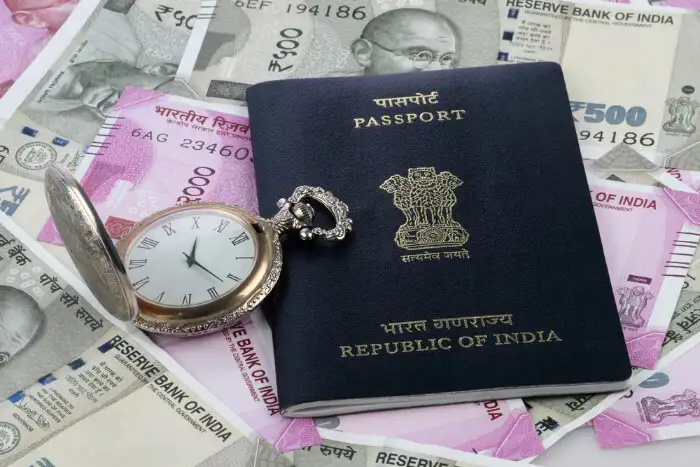Welcome to the mystical land of Ayurveda, where ancient healing practices and traditions have been preserved for centuries. Nestled in the vibrant country of India, Ayurveda offers a mesmerizing journey into holistic wellness and rejuvenation. If you’ve ever dreamed of immersing yourself in this captivating world, then you’re in luck! In this comprehensive guide, we’ll unravel everything you need to know about obtaining an Indian visa specifically catered to Ayurveda visitors. So buckle up, as we embark on a remarkable exploration through the enchanting realm of Ayurveda that will leave you spellbound and yearning for more! INDIAN VISA FOR CRUISE SHIP VISITORS
Introduction to Ayurveda
Ayurveda is an ancient system of medicine native to the Indian subcontinent. It is often called the “science of life” or the “art of living in harmony with nature.” Ayurveda is based on the principle that good health and well-being depend on a balance between mind, body, and spirit.
Ayurvedic medicine is holistic, meaning it takes into account the whole person, not just the symptoms of a disease. It also emphasizes prevention and promotion of health, rather than treatment of disease.
The word “ayurveda” comes from the Sanskrit words ayus (life) and veda (knowledge). Ayurveda is often described as a sister science to yoga, which is also based on the philosophy of balance and harmony between mind, body, and spirit.
Eligibility Requirements for Indian Visa for Ayurveda Visitors
To be eligible for an Indian Visa for Ayurveda Visitors, applicants must:
-Be a citizen of one of the following countries: United States of America, Canada, United Kingdom, Australia, or New Zealand
-Have a valid passport with at least six months remaining before expiration
-Have a recent passport-style photograph
-Complete the online visa application form
Applicants will also need to provide supporting documentation, including proof of travel insurance and a letter from their doctor or ayurvedic practitioner outlining the purpose of their visit to India.
Benefits of Applying for Indian Visa For Ayurveda Visitors
Ayurveda is a holistic system of medicine that has been practiced in India for centuries. The word Ayurveda is derived from the Sanskrit words Ayus (life) and Veda (knowledge). INDIAN VISA FOR AYURVEDA
Ayurveda is based on the premise that good health and wellbeing depend on a balance between mind, body, and spirit. It aims to prevent and cure disease by using a range of techniques, including diet, exercise, massage, and herbal medicines.
There are many reasons why people from all over the world choose to visit India to experience Ayurveda. Here are just some of the benefits of applying for an Indian visa for Ayurveda visitors:
1. Experience authentic Ayurveda: In India, you will be able to experience authentic Ayurveda at its source. There are many reputable practitioners and centers across the country that offer high-quality treatments.
2. benefit from centuries of knowledge: Ayurveda is a ancient system of medicine with a rich history and tradition. When you visit India, you will have access to this wealth of knowledge and experience.
3. Enjoy a wide range of treatments: There are many different types of Ayurvedic treatments available, so you can tailor your experience to suit your needs and preferences. Whether you want to focus on relaxation or detoxification, there will be a treatment option for you.
4. Take advantage of affordable prices: Indian visa holders
Documentation Needed for Indian Visa for Ayurveda Visitors
There are a few things you will need in order to apply for an Indian visa for Ayurveda visitors. The first is a valid passport. You will also need two passport-sized photographs, and a completed application form. You may also need to provide additional documentation, such as proof of onward travel or financial stability. Once you have all of the required documents, you can submit your application online or in person at your nearest Indian consulate.
Cost of Obtaining an Indian Visa for Ayurveda Visitors
The cost of an Indian visa for Ayurveda visitors varies depending on the country of origin. For example, citizens of the United States can expect to pay $160 for a single-entry visa, while citizens of the United Kingdom will pay £87 for a multiple-entry visa. The cost of a visa is also dependent on the length of stay; shorter stays will generally be cheaper than longer stays.
It is important to note that all visitors to India must obtain a visa before arrival, and that visas cannot be obtained upon arrival in India. Visitors who arrive in India without a valid visa will be subject to deportation.
Processing Time for Obtaining an Indian Visa for Ayurveda Visitors
The Processing Time for Obtaining an Indian Visa for Ayurveda Visitors can vary depending on the country of residence and nationality of the applicant. However, most applicants can expect to receive their visas within 4-6 weeks from the time of application.
Tourist Places to Visit on an Indian Visa For
There are many beautiful places to visit in India if you are interested in learning about and experiencing Ayurveda. Here are some of the most popular tourist destinations for those on an Indian visa for Ayurveda:
-Rishikesh: Rishikesh is a small town in the northern state of Uttarakhand. It is situated on the banks of the River Ganges and is a popular destination for both Indian and foreign tourists interested in yoga and meditation. There are many ashrams and temples located in Rishikesh which offer courses and retreats on Ayurveda.
-Haridwar: Haridwar is another small town located in Uttarakhand, on the banks of the River Ganges. It is considered to be one of the holiest cities in India and is a popular destination for Hindus who come here to take a dip in the river (considered holy by Hindus) and perform other religious rituals. There are also many ayurvedic centers located in Haridwar which offer treatments and massages.
-Varanasi: Varanasi is a city located in the northern state of Uttar Pradesh, on the banks of the River Ganges. It is one of the oldest continuously inhabited cities in the world and is considered to be a holy city by Hindus, Buddhists, and Jains. Many people come to Varanasi to bathe in the river (considered holy by Hindus) or to cremate



